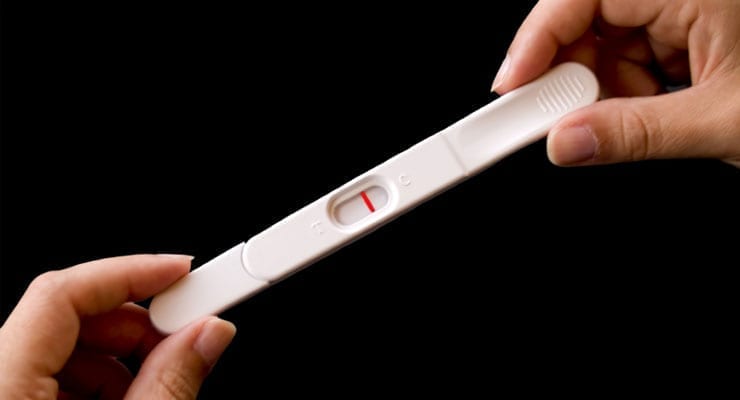It’s easy to think that you can’t get pregnant if you’re not having a regular menstrual cycle. It makes perfect sense that if you’re not having periods, you’re not fertile. The truth is that whether or not you can become pregnant depends on why you’re not menstruating and if you’re ovulating. Even if you’re not having regular periods, you could become pregnant and should use birth control to prevent pregnancy unless you’re trying to conceive.
Related Content
How Much Semen Does it Take to Get Pregnant?
How Effective Are Early Pregnancy Tests?
How Early Can an Ultrasound Detect a Fetus?
Can Yo-Yo Dieting Affect Your Fertility?
List of Fertility Pills Without a Prescription
Natural Remedies to Increase Sperm Count
Reasons for Lack of Menstruation
The reproductive system is sensitive. It reacts easily to changes in your body. Illness, stress, over-exercise and weight gain can all stop your menstrual cycle, or cause it to occur sporadically. Hormone imbalances and medical conditions like polycystic ovarian syndrome can leave you without a period. Certain factors that affect your period might effect your ovulation cycle differently.
How You Could Get Pregnant
Pregnancy can only occur during ovulation. Ovulation usually occurs about two weeks before menstruation in women with normal, regular menstrual cycles. During ovulation, your body releases a fertilized egg, which breaks down after 12 to 24 hours. The trouble with having no menstrual cycle is that you don’t know if your body is planning to have one in the near future. This means, you could be ovulating in preparation for a cycle that’s about to start, or you could be ovulating without having actual periods. Any time you ovulate, you can become pregnant.
Signs You Might be Ovulating
One of the easiest ways to determine if you might be ovulating is to check your cervical mucus. Your mucus changes at different points in your cycle. It goes from dry, to thick and creamy, to clear and watery, to stretchy like egg whites, then reverses back until it’s dry. The stretchy, egg-white mucus occurs during ovulation. You can confirm ovulation by using an over-the-counter ovulation test. You can also chart your body temperature using a basal body thermometer. Your temperature jumps up by about 1/2 to 1 degree at ovulation.
Regulating Your Cycle with Medical Treatments
If you’re a woman over 16 who’s not menstruating, you should discuss potential causes with your doctor or gynecologist. She can prescribe treatments for any underlying medical conditions or put you on hormonal birth control to regulate your hormones. Birth control essentially forces your body to have a menstrual cycle while also suppressing ovulation. If you’re not menstruating due to stress or a vigorous athletic training schedule, easing the physical and mental demands on your body is often enough to restore menstruation.
Preventing Pregnancy
If you’re trying to avoid pregnancy, you should use protection every time you have intercourse, whether you regularly menstruate or not. Hormonal birth control prevents pregnancy when taken correctly. You can also purchase contraceptive foam over-the-counter. If you’re interested in preventing pregnancy for 5 to 10 years, you can have an intrauterine device inserted at your doctor’s office. Hormonal and intrauterine methods don’t offer protection from sexually transmitted infections. Condoms offer both pregnancy and STI protection and are available without a prescription.





